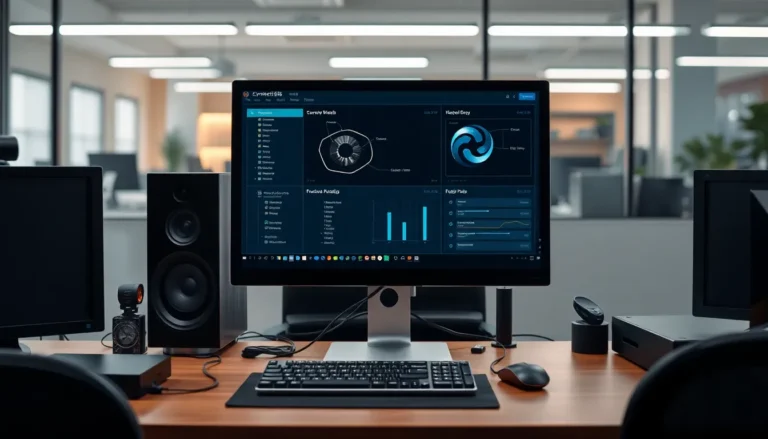Table of Contents
ToggleIn the heart of the Windy City, a biotech revolution is brewing, and it’s more exciting than a deep-dish pizza on game day. Chicago’s biotech companies are pushing boundaries, turning wild ideas into groundbreaking innovations that could change the world. From life-saving therapies to cutting-edge research, these firms are not just playing with petri dishes; they’re rewriting the rules of healthcare.
Imagine a place where scientists don lab coats and wield pipettes like superheroes. That’s Chicago’s biotech scene—a vibrant hub where creativity meets technology. With a supportive ecosystem of research institutions and investors, the city is becoming a beacon for those eager to make a difference. So buckle up and get ready to explore how these trailblazers are transforming science into solutions, one experiment at a time.
Overview of Biotech Companies in Chicago
Chicago’s biotech sector showcases a diverse range of companies. These organizations focus on pharmaceutical developments, agricultural biotech, and medical diagnostics. Major players include AbbVie, respected for its contributions to immunology and oncology. Another significant name is Horizon Therapeutics, recognized for its innovative treatments in rare diseases.
The biotech landscape features numerous startups that contribute to the industry’s dynamism. Companies like FieldMed and Tempus are at the forefront, harnessing data analytics to enhance patient care and precision medicine. Additionally, partnerships with research institutions, such as Northwestern University and the University of Chicago, foster collaboration that accelerates scientific discovery.
Investments in this sector highlight the confidence in Chicago’s biotech potential. In 2021 alone, biotech startups in Chicago raised approximately $1.5 billion in funding. Investors are drawn to the city’s strong talent pool and the collaborative atmosphere among companies and academic institutions.
Organizations such as the Illinois Biotechnology Innovation Organization (BioIllinois) play a crucial role. They advocate for policies that support biotech growth and provide resources for startups. Moreover, Chicago’s strategic location and access to established healthcare networks enhance its appeal as a biotech hub.
Innovations emerging from these companies are often groundbreaking. Treatments developed in Chicago aim to address unmet medical needs, emphasizing the potential to improve patient outcomes significantly. Collaboration, investment, and innovation form the backbone of Chicago’s thriving biotech ecosystem.
Key Players in Chicago’s Biotech Scene

Chicago’s biotech landscape is marked by both established firms and emerging startups, showcasing a rich ecosystem of innovation. These companies contribute significantly to advancements in healthcare and technology.
Established Biotech Firms
AbbVie stands as a leader in pharmaceuticals, focusing on immunology and oncology. Horizon Therapeutics thrives in developing treatments for rare diseases, showcasing commitment to patient-centered solutions. Both firms leverage Chicago’s research infrastructure, collaborating with institutions like Northwestern University. GSK and Astellas also maintain a robust presence, driving drug development and research efforts in the area. Their established pipelines and market experiences help advance the local biotech scene, fostering growth and generating substantial employment opportunities.
Emerging Startups
Innovative startups play a crucial role in shaping Chicago’s biotech future. FieldMed develops cutting-edge telehealth solutions, enhancing patient access to medical care. Tempus utilizes data analytics to improve precision medicine, driving more effective treatments. Other rising stars include Biotex, which specializes in agricultural biotechnology, and OncoFusion, focusing on cancer therapeutics. These companies often attract substantial investment, contributing to the approximately $1.5 billion raised by biotech startups in 2021. Their agility and fresh perspectives complement the efforts of established firms, propelling Chicago’s biotech sector forward.
Innovations and Research Developments
Chicago’s biotech landscape thrives on a combination of research and innovations that drive progress in healthcare. Companies in the area focus on various high-impact fields including pharmaceuticals, medical diagnostics, and agricultural biotech. Notable advancements involve therapies that target diseases like cancer and rare genetic disorders, showcasing the region’s commitment to improving patient care and outcomes.
Areas of Focus
Pharmaceutical advancements dominate the focus of many Chicago biotech firms. Companies like AbbVie and Horizon Therapeutics concentrate on immunology, oncology, and rare diseases. Data-driven approaches enhance clinical trial designs and patient recruitment, optimizing drug development processes. Medical diagnostics play a critical role, with startups developing innovative tools for early disease detection. These innovations directly influence treatment strategies and healthcare delivery, ultimately improving overall patient experiences.
Collaborations with Local Universities
Collaborative efforts between biotech firms and local universities amplify research capabilities. Partnerships with institutions such as Northwestern University and the University of Chicago cultivate an environment of knowledge exchange. These collaborations often lead to breakthroughs in research methodologies and therapeutic approaches. Internship programs provide students with hands-on experience and access to cutting-edge technology. Together, these initiatives create a robust ecosystem that fosters innovation and accelerates the translation of scientific discoveries into real-world applications.
Economic Impact of Biotech in Chicago
Chicago’s biotech sector significantly impacts the local economy, driving job growth and innovation. The rise of this industry alters the city’s economic landscape, paving the way for new opportunities.
Job Creation and Workforce Development
Job creation in Chicago’s biotech industry remains robust. Major players like AbbVie and emerging firms such as Tempus contribute to a diverse workforce. The sector employs thousands of professionals across various roles, from research scientists to data analysts. Local universities have adapted their programs to prepare students for these roles, enhancing their skill sets with hands-on experiences. Internship programs provide valuable training, ensuring a steady pipeline of talent. Workforce development initiatives, supported by organizations like BioIllinois, emphasize the need for continuous education and training.
Contributions to Local Economy
The contributions of biotech to Chicago’s local economy are substantial. It generates billions in economic output, with startups raising approximately $1.5 billion in funding just in 2021. The presence of established firms fosters a competitive ecosystem that attracts investors and researchers alike. Synergies between biotech companies and local research institutions amplify economic activity. Collaborations lead to innovations that frequently translate into market-ready products, resulting in increased healthcare access. As the sector expands, it stimulates local businesses, including suppliers and service providers, bolstering the overall economy.
Challenges Facing Biotech Companies
Biotech companies in Chicago encounter several challenges that may hinder their growth prospects.
Funding and Investment Issues
Securing funding remains a critical challenge in the biotech landscape. Startups often seek investment from venture capital to support their research and development efforts. Despite raising about $1.5 billion in 2021, many companies still struggle to attract adequate resources. Investors typically prioritize proven technologies and established firms, which can leave emerging startups at a disadvantage. Limited access to capital complicates the journey from research to market, making collaboration with research institutions vital. Collaborative alliances can enhance credibility, making startups more appealing to potential investors.
Regulatory Hurdles
Navigating regulatory requirements presents another significant challenge. Biotech firms must comply with complex regulations from agencies like the FDA. These requirements can delay product development and increase operational costs. Companies may face lengthy approval processes, particularly for new therapies targeting serious conditions. Adhering to these regulations demands resources that many startups may not possess. A robust understanding of the regulatory landscape is essential for success, and firms often invest in regulatory specialists to help manage this aspect. Engaging with regulatory bodies early in the development process can improve chances of successful product launch.
Chicago’s biotech scene is a vibrant testament to innovation and collaboration. With a mix of established giants and dynamic startups the city is well-positioned to lead advancements in healthcare. The partnerships between biotech firms and local research institutions create a fertile ground for breakthroughs that can transform patient care.
As the sector continues to grow investment and support from organizations like BioIllinois will play a crucial role in overcoming challenges. The commitment to nurturing talent through educational programs ensures that Chicago remains a competitive player in the global biotech landscape. With its strategic location and robust network the future looks bright for biotech companies in Chicago.







